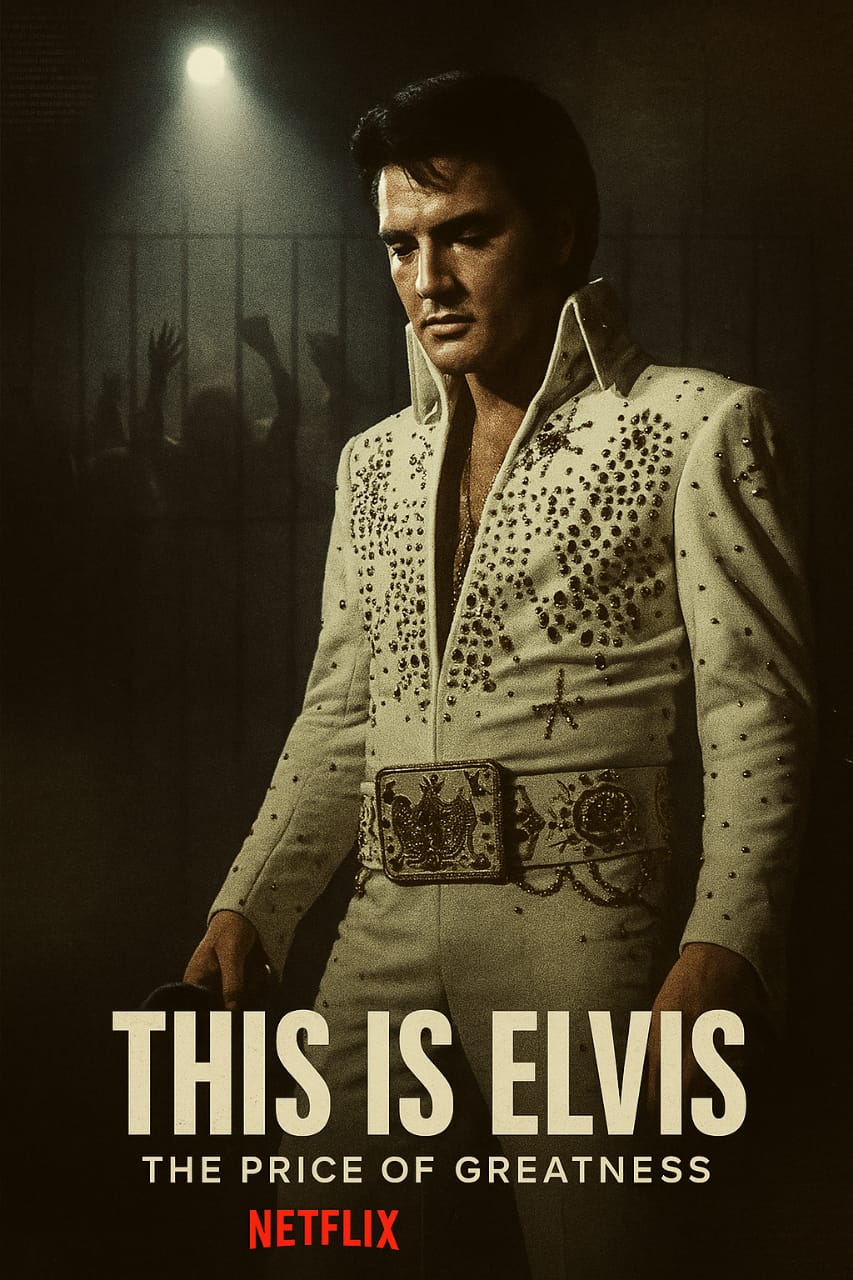Few figures in music history carry as much myth, admiration, and sorrow as Elvis Presley. Netflix’s This Is Elvis reintroduces the King of Rock ’n’ Roll to a new generation—not as a distant icon carved in marble, but as a man who bore the crushing weight of his crown. The documentary explores both the brilliance and tragedy of Presley’s life, reminding us that stardom often exacts a price few can afford.
From the start, This Is Elvis establishes Presley’s duality. He was the rebel who electrified the 1950s with swiveling hips and a sound that fused gospel, blues, and country. Yet he was also a southern boy who longed for acceptance, approval, and love. These opposing forces—freedom and constraint—define the story. The crown of greatness he wore glittered brightly, but it became, in time, a gilded cage.
The film paints Presley not only as a musician, but as a cultural phenomenon. He broke barriers of race and class through music that borrowed and blended traditions. His presence terrified the establishment while thrilling youth hungry for change. Still, the same daring energy that brought him fame eventually made him a prisoner of expectation. Fans and managers alike demanded more of the myth, less of the man.
Central to the documentary is the relationship between Elvis and Colonel Tom Parker, his infamous manager. While Parker secured lucrative deals and built Presley’s empire, he also imposed suffocating control. The Colonel’s obsession with profit often silenced Presley’s artistic impulses, trapping him in a cycle of formulaic films and exhausting tours. Watching this dynamic unfold, it’s hard not to see Parker as the architect of Elvis’s cage.
But This Is Elvis refuses to reduce Presley to a victim. It shows his complicity—his willingness to submit, his inability to push back, his fear of disappointing others. The crown of the “King of Rock ’n’ Roll” wasn’t just placed upon his head; he accepted it, even as it weighed him down. That acceptance reveals something profound about the cost of pleasing the world at the expense of self.
The film also delves into Presley’s contradictions: a man of deep spiritual longing who indulged in earthly excess, a public figure adored by millions who wrestled with loneliness in Graceland’s halls. These contradictions make him compelling, but they also point to the isolation that often shadows fame. Behind the rhinestones and spotlights, Elvis’s life was marked by restlessness, insomnia, and a dependence on the substances that would ultimately undo him.
The performances, of course, remain dazzling. The documentary splices archival concert footage with intimate behind-the-scenes moments, reminding viewers of why Presley captured hearts worldwide. Even decades later, his charisma radiates. Yet the brilliance of these moments is bittersweet. Each triumphant song echoes with the knowledge that the man singing it was crumbling inside.
One of the documentary’s most powerful themes is the way celebrity culture devours its stars. Presley’s life demonstrates how the machinery of fame—record labels, managers, studios, fans—feeds on talent until little is left. In chasing the myth of Elvis, the world contributed to his decline. He became a commodity first, a human second. That uncomfortable truth lingers throughout the film.
At the same time, This Is Elvis doesn’t strip Presley of his agency or artistry. It celebrates his genius, his generosity, his warmth. Interviews with those who knew him reveal a man who wanted to give joy, even when he struggled to find his own. This duality—glory and pain, crown and cage—is what makes Presley’s story timeless and tragic.
The documentary also speaks to today’s culture, where fame still consumes. In an age of viral stardom, streaming, and relentless social media, Presley’s struggles feel eerily current. The crown shines brighter than ever, but the cage is just as confining. Young stars may see in Elvis’s story both a warning and a mirror.
Ultimately, This Is Elvis leaves viewers with more than nostalgia. It invites reflection on the nature of greatness itself. Does the pursuit of legend always come with sacrifice? Is it possible to wear the crown without surrendering freedom? Presley’s life suggests that the higher one climbs, the fewer exits remain.
In the end, Elvis Presley remains both crowned and caged—an immortal icon who paid the highest price for his brilliance. Netflix’s This Is Elvis doesn’t just recount a biography; it confronts us with the fragile humanity beneath the legend. And in doing so, it reminds us that greatness, while dazzling, is never free.



